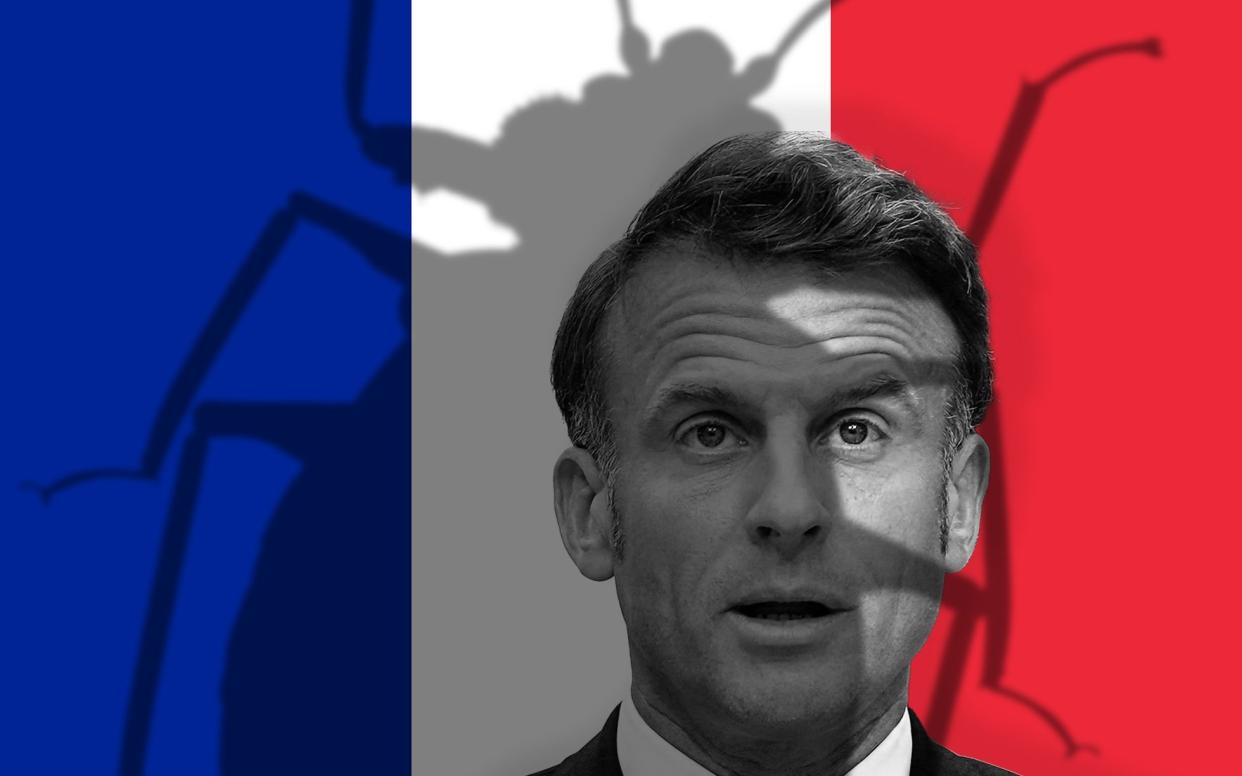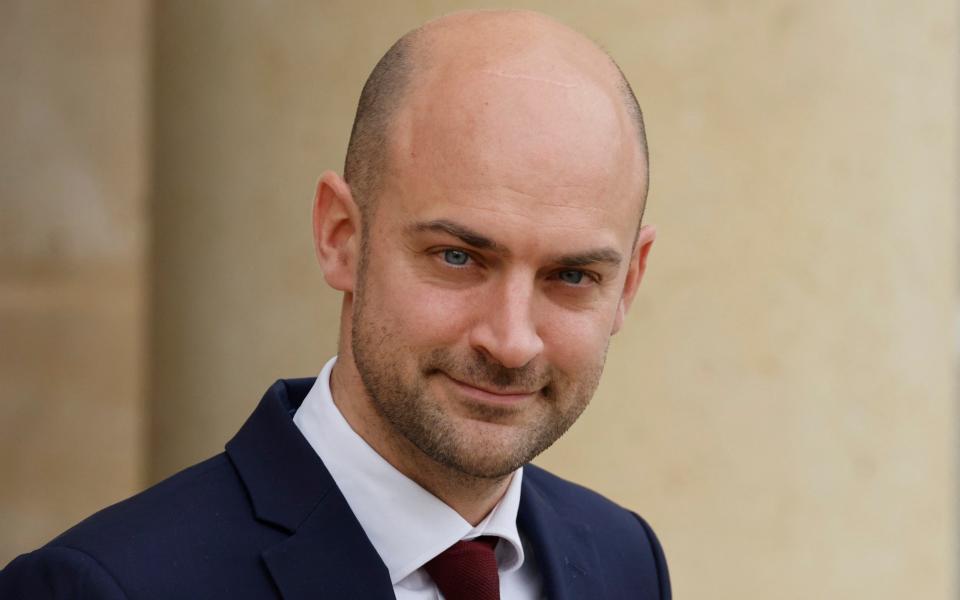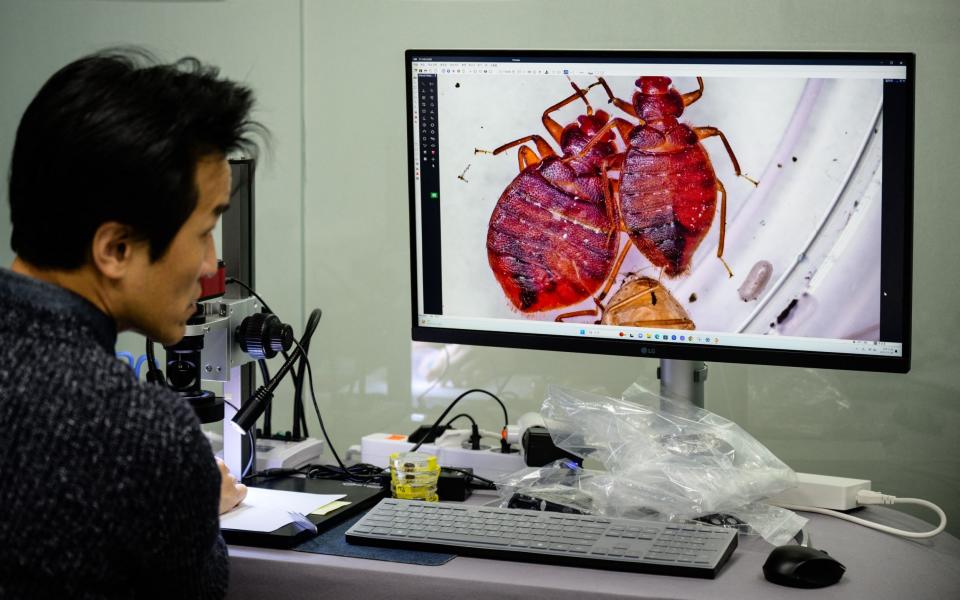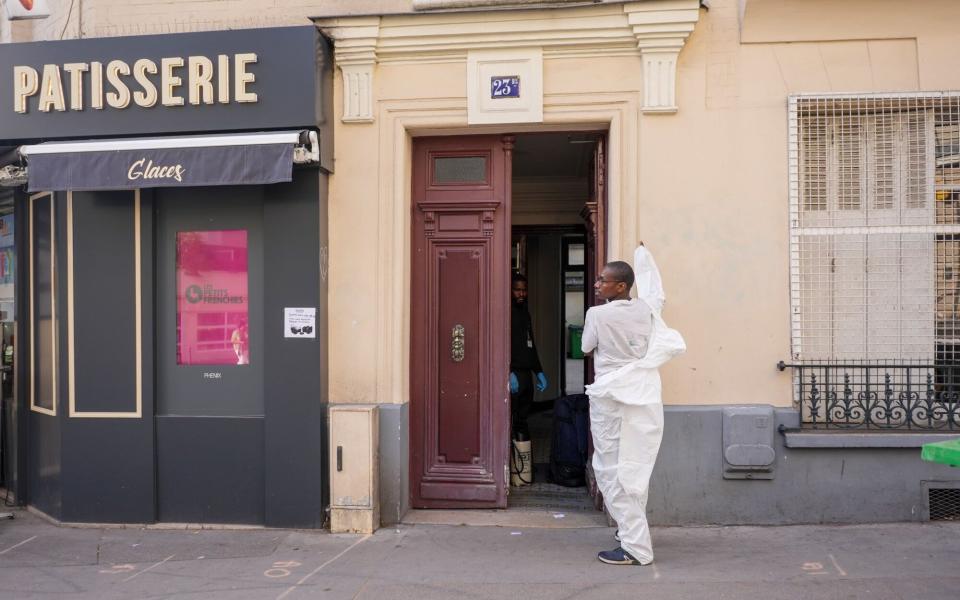How bed bugs brought down Macron

It all started last September, in the quiet Parisian suburb of Bercy – at least, as far as we can tell. A woman called Nawal took to social media to complain that she was covered in bed bug bites after watching a film at a local cinema. Her post caused the filmhouse’s owner to apologise and roll out “emergency measures” to contain the infestation in its seats.
But still Nawal’s bed bug bites went viral, as did a number of posts by other Parisians who claimed the same injuries. Soon it seemed like all of France was overrun with the bugs – in their homes and on public transport – and the hysteria quickly spread over the Channel.
Eurostar deep-cleaned its train carriages amid panic that the insects could be coming for London; airlines were urged to be on high alert, with permission to ground aircraft suspected of carrying these unwanted passengers.
Now, French officials are claiming that this plague simply never happened, at least not on the scale we all believed.
MEP Valérie Hayer pronounced last month that the furore was the result of “Kremlin interference”, and France’s Secretary of State for European Affairs Jean-Noël Barrot told journalists in March that the issue “was very largely amplified by accounts linked to the Kremlin”.

Both politicians were responding to concerns that the bugs could impinge on the upcoming Olympic games in Paris. But why would Russia want to fuel a panic about bed bugs?
The surprising answer from experts is: to influence this month’s European Union elections.
Exit polls suggest that President Emmanuel Macron’s Renaissance party has come a very distant second to Marine Le Pen’s far-Right Rassemblement National, which is on course to win 32 per cent of the vote, more than double the proportion won by Macron’s centrist alliance.
So bad are the projected results for the French president that he has called a snap parliamentary election to stem the far-Right’s progress.
And such a result suits Moscow’s agenda.
“[The bedbug ploy] was a campaign that began several months in advance of the EU elections but one that was very much to do with it,” says Stephen Hutchings, a professor of Russian Studies at the University of Manchester. “Particularly on social media the idea was that the bed bugs had been brought by a swarm of migrants flooding France and other European countries.
“Sometimes where Russian social media actors were involved, this was specifically tied to Ukraine. The idea that Ukrainian refugees and migrants in general were bringing disease, filth and infestation with them was a way of slowly building up resistance among ordinary French and European people to the war and to the Macron government.”
What’s more, “Le Pen has been on record as saying quite sympathetic things about Russia and Putin,[while] Macron has now become this leading anti-Kremlin hawk,” Hutchings adds, pointing to the French president’s recent statement that he had not ruled out sending troops to fight Russia in Ukraine.
Nobody is saying that Paris is totally bed-bug free. According to France’s Union Chamber of Insect Control, cases of bed-bug infestations rose between 2017 and 2022, with one in 10 households having experienced an unwanted visit in that time, long before last year’s panic began.
Rather, it’s likely that hysteria spread deliberately on social media following real sightings caused many to mistake more innocent insects for the creatures.

Now that the panic has subsided, it’s easier to get a full picture of the problem.
Case in point: despite a video of a supposed bed bug on the London Underground (which led to 30 further reported sightings) and clips of passengers cling-filming their seats on the Paris Metro going viral, investigators in both countries failed to find a single bug, dead or alive.
“This is what Russia does,” says Rory Cormac, a professor specialising in international affairs and secret statecraft at the University of Nottingham. “The key point is that they don’t just make things up – they take something that is legitimate, like seeing what looks like bed bugs in a video taken on the Tube, and blow it up through inauthentic networks until it becomes a much bigger story.”
By “inauthentic networks”, Cormac means the artificial spread of pictures and videos online by groups of accounts, as opposed to something “naturally” going viral among real social media users.
Some of this spreading is done by “bots”, or automated social media accounts set up to reshare things that make a target look bad. But there are also private firms that act on behalf of Russia or other states or groups, where employees man a number of fake accounts that amplify select types of social media posts.
“That’s probably where this whole thing started,” he says, with the Paris cinema case as a possible example, “but the same people who kicked it off had probably tried to amplify a hundred different stories that day too.”
“The ultimate aim of this sort of tactic is to sow division and make people distrust authority,” he adds. “Some things take off – others don’t.”
This modus operandi has been comprehensively documented by France’s own state-run disinformation unit, Viginum, which was set up in 2021 to maintain “vigilance and protection against foreign digital interference”.
Recently Viginum has identified an “onslaught” of disinformation that it has pinned on the Kremlin in the run-up to the Olympics and the EU elections.

According to a report by Le Monde last month, Russian-hired agents were responsible for drawing red hands – a pro-Palestinian symbol – on a Holocaust memorial earlier in May, as well as Stars of David in different parts of central Paris in late October.
In April, Viginum uncovered evidence of Russia-linked social media actors “stirring things up on the bed bug front”, says Hutchings.
It also “claimed to have uncovered a Kremlin-linked network which they called doppelgänger, which consisted of fake sites imitating well-known French media sites like Le Monde that were publishing articles with a distinct anti-French and pro-Russian slant”.
The problem runs even deeper than this. Macron became victim to a disinformation campaign in the first days of his premiership and long before the issue was widely discussed, says Nicolas Hénin, a French former journalist who now works with Hutchings on an independent counter-disinformation project.
“Two days before the presidential election, some documents were leaked from the Macron campaign – most of which were real, and dealt with everyday things like catering expenses, but some of which had been planted by Russia and were fake,” Hénin explains.
Hénin says that French media acted swiftly to contain the spread of the fake information, which he believes was planted by Russia, leaked by WikiLeaks and later “amplified” by the American alt-Right, in what he calls a “sophisticated” operation.

Macron has since been cracking down on word warfare, Hénin says. “One of the first things Macron did in office was to set up a disinformation unit that eventually became Viginum, the one that functions today,” he explains.
“Because of this, France’s ability to attribute disinformation campaigns to Russia has increased, hence why French officials have been willing to come out and pin the bed-bug scare on the Kremlin.”
Yet France has still struggled to shake its bed-bug problem. “This is what disinformation does when it’s successful, it makes life difficult,” says Cormac. “The French government is keen to pin all this on Russia, but when there are inevitably bed bugs that crop up in Paris, they’re put in a lose-lose position.”
And there is one other way in which the bed-bug story has furthered Moscow’s agenda. Thanks to work such as The Bedbug, a famous play by the Soviet poet and playwright Vladimir Mayakovsky, where a character is frozen in time and transported to a communist utopia some 50 years in the future – with a friendly bed bug as his companion, the insect occupies a certain place in the Russian cultural imagination.
In Russia, these insects are “usually seen in a humorous dimension”, says Hutchings, who has written extensively about Russian literature.
The bugs “are very common in Russia, as I know at my own expense. The Russians see them as a part of everyday life, and really as no big deal, rather than as unpleasant or threatening as they are here and in France. It is a good story in the way that this problem can be used as a sort of mockery.”
Hutchings points to Russia’s own state media coverage of the bed bug scare, which he described as “disinterested and even sober”. One report by state-owned news agency RIA Novosti pointed to the “psychosis” of Europe in blaming Russia for even its bed bug problem.
“This is a win for Russia on one level because it makes us in the West look a bit ridiculous, as we’re getting into such a tiz about something that to them is so banal and trivial,” Hutchings says.
“On another level, it offers confirmation to a much bigger narrative, that the Western world is infested with Russophobia and that we are constantly blaming them for our most basic problems.”
“However you cut it,” the professor concludes, “this bed bug panic really does play into Putin’s hands.”

